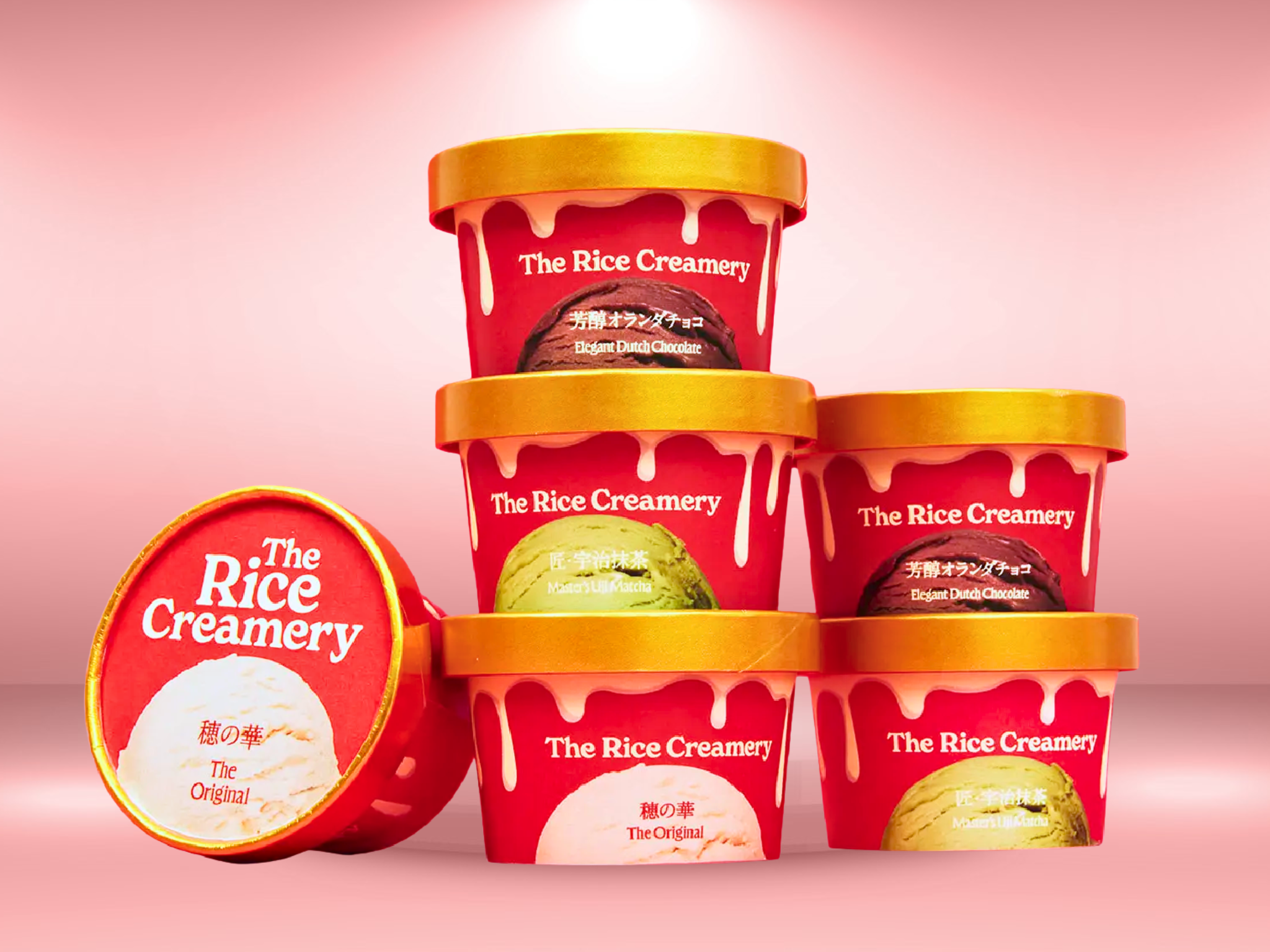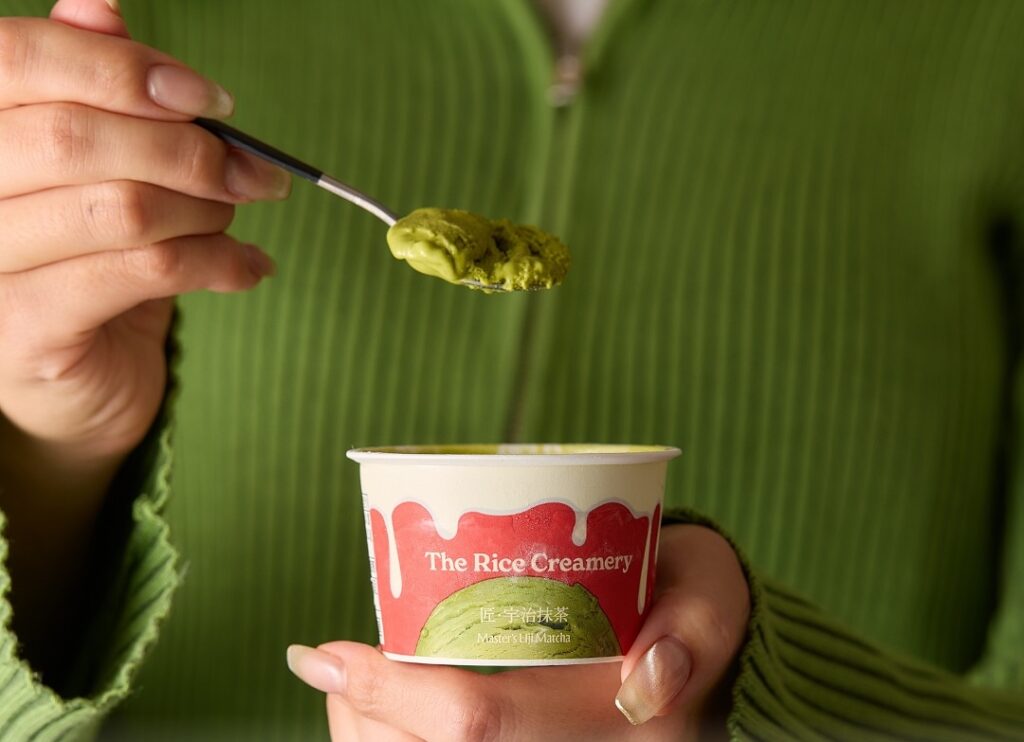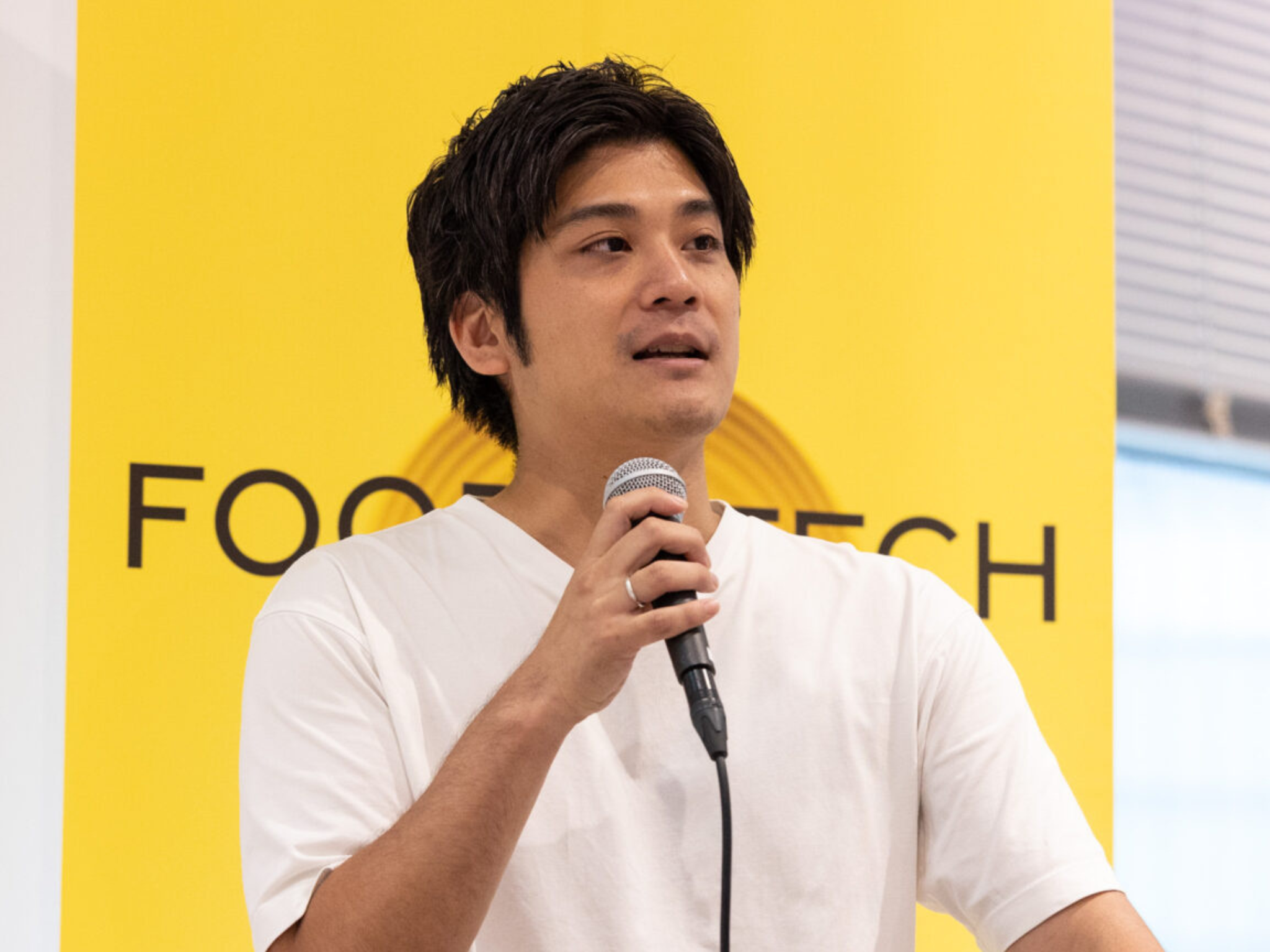
Tokyo-based startup Kinish has unveiled The Rice Creamery, a new dairy-free ice cream brand that’s available in local retailers and earmarked for a US debut.
Japanese food tech firm Kinish has introduced a new ice cream brand that ditches the dairy to spotlight the unique sensory properties of rice.
The Rice Creamery features three flavours of vegan ice cream made from rice, which are available at Tokyu Store’s Toritsu-Daigaku branch and online on Seijo Ishii. The startup has global ambitions, though, planning a US launch of the range under The Rice Cream brand, starting with Washington, DC, this year.
The products have 60% less sugar than the market standard in Japan, and lower greenhouse gas emissions by 62%, meeting consumer concerns about nutrition and environmental impact.
The launch of the vegan ice cream range comes amid Kinish’s parallel efforts to grow cow-free milk proteins in rice plants via molecular farming.

Kinish’s ‘rice cream’ gets rave public reviews
Dairy and rice are two of the largest contributors to the food system’s methane emissions, but the former’s carbon impact is more than twice as high as the latter’s. Moreover, the number of dairy farmers is declining, while milk consumption has been shrinking since the 1990s.
At the same time, 2.4% of Japanese consumers said they were vegan in 2023, up from 1% in 2017. Plus, research suggests that up to 90% of Japan’s population is lactose-intolerant, underlining the importance of alternatives to milk products.
Instead of aiming to replicate the taste of milk, Kinish is betting on the “unique sweetness” of Japanese rice. The naturally sweet varieties are short, plump and sticky, and allow products to deliver sensory qualities that even dairy cannot, according to the startup.
The original flavour of the ice cream is called Honoka, and contains a base of rice syrup and cashew paste, which are combined with sugar, glucose, dietary fibre, salt, an emulsifier and a stabiliser.
The Master’s Uji Matcha variant is the result of a collaboration with tea processor Hotta Katsutaro Shoten, combining the above ingredients with Uji matcha. Finally, Elegant Dutch Chocolate is a nod to Japan’s introduction to chocolate by the Netherlands, and adds Dutch cocoa powder to the initial rice-cashew base.

The Rice Creamery’s products are priced at ¥347 ($2.35), and will be gradually expanded to convenience stores and other major cities across Japan.
Ahead of their release, Kinish hosted public taste tests of the ice cream and received glowing feedback. According to the company, comments ranged from “It’s satisfyingly delicious” to “It’s rich and flavorful, yet leaves a pleasant aftertaste”.
Rice-based ice cream alternatives are a niche category. In Asia, Morinaga Company sells two versions under its Okometo brand in Japan, and Singapore’s Smoocht supplies brown-rice-based ice creams.
Kinish is using molecular farming to produce casein in rice
The rollout of its rice-based ice creams opens up a new revenue stream for Kinish, which will help speed up its molecular farming efforts too. The firm raised ¥120M ($800,000) in seed funding this February to support its research.
Climate change is wreaking havoc on Japan’s rice production. Consumption of the staple has more than halved since the 1960s, and a crop shortage has forced the government to release 200,000 tonnes of emergency rice stockpile.
Kinish uses plant molecular farming to grow casein (the main protein found in cow’s milk) in rice grains, and blends the process with vertical farming to use a fraction of the land and water used by both rice and dairy.
Molecular farming is a more viable and affordable way to replicate animal proteins than cell cultivation or precision fermentation. It entails genetically engineering plants to produce proteins, which can then be harvested from leaves or other tissues. This eschews the need for expensive fermentation tanks, since plants themselves act as the bioreactors.

Kinish applies the technology to dwarf rice plants, which are just 20cm tall and can be cultivated in large quantities in plant factories. By utilising vertical farming, it can grow the crops in stacked cultivation and harvest them in less than half the time required for traditional rice.
The company has partnered with Shizuoka University to design a plant factory specialising in dwarf rice. And it eventually aims to create an ice cream combining the rice-derived casein with rice starch for sweetness, as well as a variety of cheese products with its milk protein.
“Kinish is working to develop an unprecedented dairy alternative product by maximising the potential of rice and our unique technology,” founder and CEO Hashizume Hiroya said earlier this year.
It is among a host of companies using molecular farming to produce animal proteins in plants – Alpine Bio, Mozza, Miruku, Veloz Bio, and Finally Foods are all similarly focusing on casein. Meanwhile, New Culture, Fermify, Zero Cow Factory, Standing Ovation, and Those Vegan Cowboys are using precision fermentation to produce this protein. And Pureture is making yeast-derived vegan casein via liquid fermentation.
The post Japanese Startup Rolls Out Rice-Based Ice Cream with Global Ambitions appeared first on Green Queen.
This post was originally published on Green Queen.